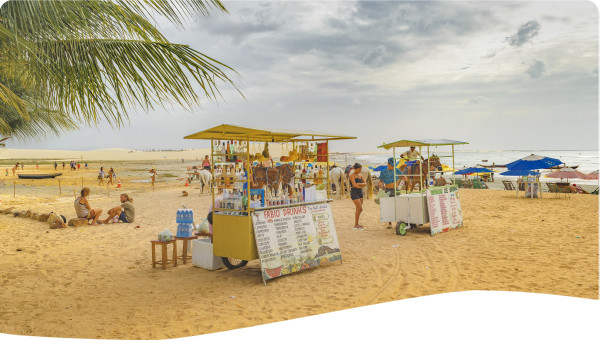A large proportion of Brazil's population is lacking access to water and sanitation, and development is slow, in particular in rural areas due to lack of funds and political will, but also due to inefficiency in resources allocation. Action has been taken by the State of Ceará to implement model called Integrated Rural Water Supply and Sanitation System, illustrating that most important component of attaining sustainable management is user participation.
User participation is the most important factor of sustainability of rural water supply and sanitation systems. Effective participation is seen as a means of assuring that cultural, environmental and socio-economic characteristics of each community are properly addressed.
